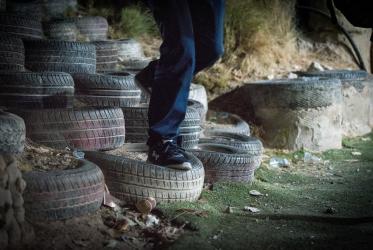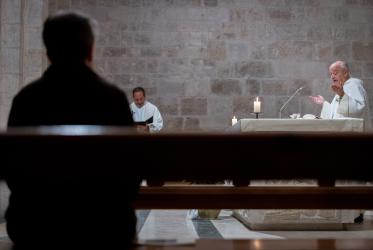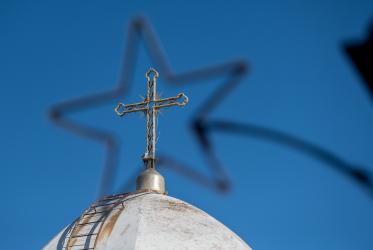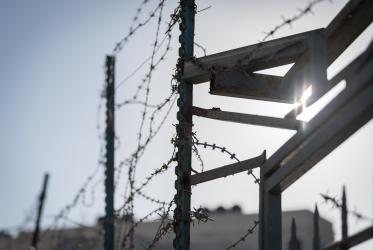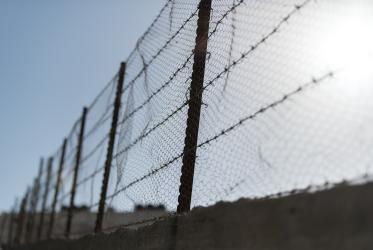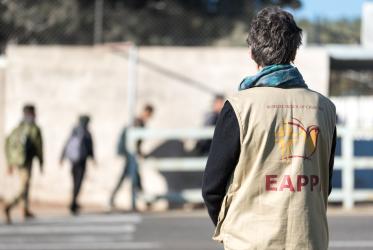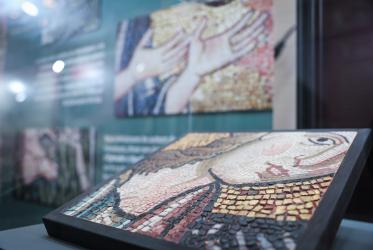Displaying 1 - 20 of 63
Words of steadfastness ring from the rubble
21 March 2024
Thirsting for peace: Gaza's water woes in the midst of war
31 January 2024
Women and children in Gaza bearing brunt of ongoing war
16 January 2024
Messages of hope amid strife ring for New Year
11 January 2024
Violations of human rights escalate in Masafer Yatta, Jerusalem
30 November 2023
Violence against Palestinians is rising in the West Bank
16 November 2023
Ecumenical accompaniers report growing violence against Palestinians
21 September 2023
“All groups should be allowed to come and worship”
14 April 2023


